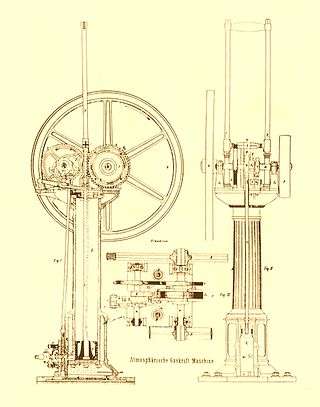Eugen Langen


Carl Eugen Langen (9 October 1833 – 2 October 1895) was a German entrepreneur, engineer and inventor, involved in the development of the petrol engine and the Wuppertal monorail. In 1857 he worked in his father's sugar factory, JJ Langen & Söhne, after an extensive technical training at the Polytechnic institute in Karlsruhe, patenting a method for producing sugar cubes, which was purchased in 1872 by Sir Henry Tate of England, noted for establishing the Tate Gallery, London.
Otto and Langen
Langen met Nikolaus August Otto in 1864. Otto was working on improvements to the gas engine invented by Belgian Etienne Lenoir. The technically trained Langen recognized the potential of Otto's development, and one month after the meeting, founded the first engine factory in the world, NA Otto & Cie. At the 1867 Paris World Exhibition, their improved engine was awarded the Grand Prize.[1]
Deutz
After this first factory went bankrupt, Langen founded a new company for the construction of gas engines, Gasmotoren-Fabrik Deutz,[2] which later became the group Kloeckner-Humboldt-Deutz (KHD). This became today's Deutz AG. Langen invented and applied new methods of production in the KHD factory.
Railway equipment
In the field of rail transport equipment, Langen was co-owner and engineer of the Cologne Waggonfabrik van der Zypen & Charlier. He started the Wuppertal monorail, a suspension railway system, in 1894.
See also
References
| Wikimedia Commons has media related to Langen monorail. |
- ↑ http://www.dhub.org/object/207174
- ↑ Wise, David Burgess. "Daimler: Founder of the Four-Wheeler", in Northey, Tom, ed. World of Automobiles (London: Orbis, 1974), Volume 5, p.483.
- Wise, David Burgess. "Daimler: Founder of the Four-Wheeler", in Northey, Tom, ed. World of Automobiles Volume 5, pp.481-3. London: Orbis, 1974.
- [www.britannica.com/EBchecked/topic/.../Eugen-Langen Eugen Langen] at Britannica.com